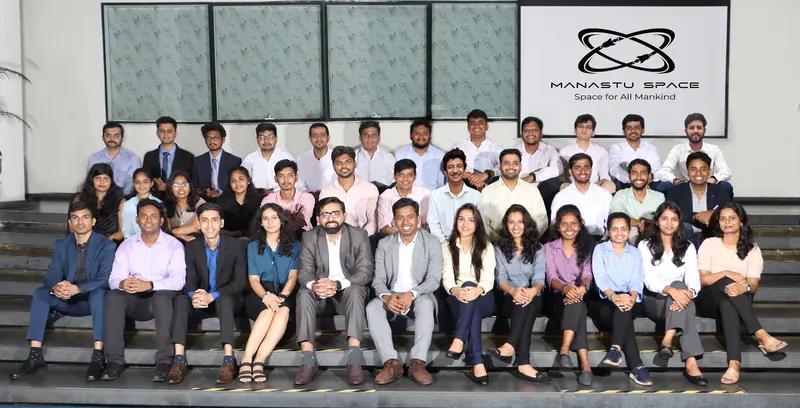Manastu Space secures $3M led by Capital 2B, BIG Capital, E2MC
Mansatu Space will use the funding for the development and deployment of its Green Propulsion and Debris Collision Avoidance System, and in-space services.
Space-tech startup has raised $3 million in a pre-Series A funding round. The round was led by Capital 2B, BIG Capital, and E2MC.
The investment round also saw participation from Baring India through Sanchi Connect as well as Wealthy via Ventures, Roots Ventures, Riceberg Ventures, the founders of Atomberg, Spectrum Impact, and the family office of Aarti Industries.
Additionally, several other institutional investors, promoters, and select angel investors also invested in the round.
Mansatu Space will use the funding for the development and deployment of its Green Propulsion and Debris Collision Avoidance System, and in-space services. The technology helps satellites to navigate through space and avoid any debris that might collide with them.
"Manastu Space will play a consequential role towards control and manoeuvering of assets in orbit and beyond. The team is incredibly ingenious and has built the tech with minimal resources and we are really excited about the possibilities.” Vibhore Sharma, Partner at Capital 2B, said.
It achieves this by harnessing a combination of fuel, engine, and catalyst-based avoidance, effectively mitigating the escalating menace of debris collisions and the subsequent proliferation of space debris.

"We have already secured several contracts, including one with the Indian Defense, a partnership with
French startup Latitude, and a recent agreement with iDEX—defence innovation organisation," Founder and CEO, Tushar Jadhav, said.
According to Co-founder and CTO Ashtesh Kumat, the solutions will help in the ongoing and expanding requirements for space sustainability.
The pressing issue of space debris poses a grave threat to the prospects of future space exploration. Presently, there exist in excess of 160 million fragments of space debris hurtling through space at velocities reaching up to 8 km/s.
A collision with a satellite has the potential to generate additional debris, triggering a chain reaction that could render space exploration exceedingly challenging, if not unfeasible.
"Manastu’s focus on developing renewable fuel systems address a critical problem that has seen an exponential increase with increased space accessibility and objects in the low earth orbit," Preetinder Panjrath, CFO at BIG Capital, said.
Mansatu Space started at the Student Satellite Lab at IIT Bombay where the founders worked on developing Pratham as an Indian ionospheric research satellite with implications in early tsunami warnings.
Pratham was successfully launched into space aboard ISRO's PSLV C35 rocket on September 16, 2016.
Edited by Kanishk Singh








